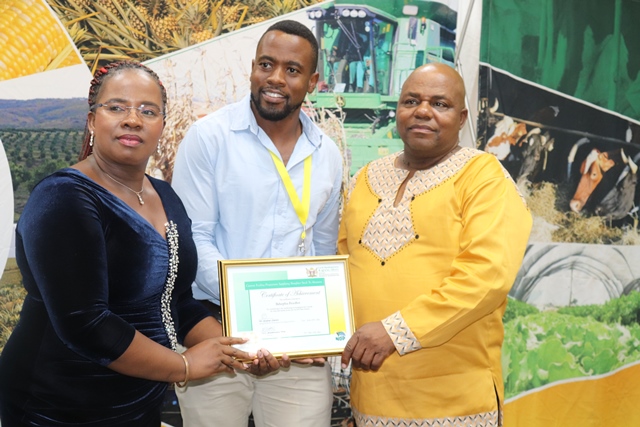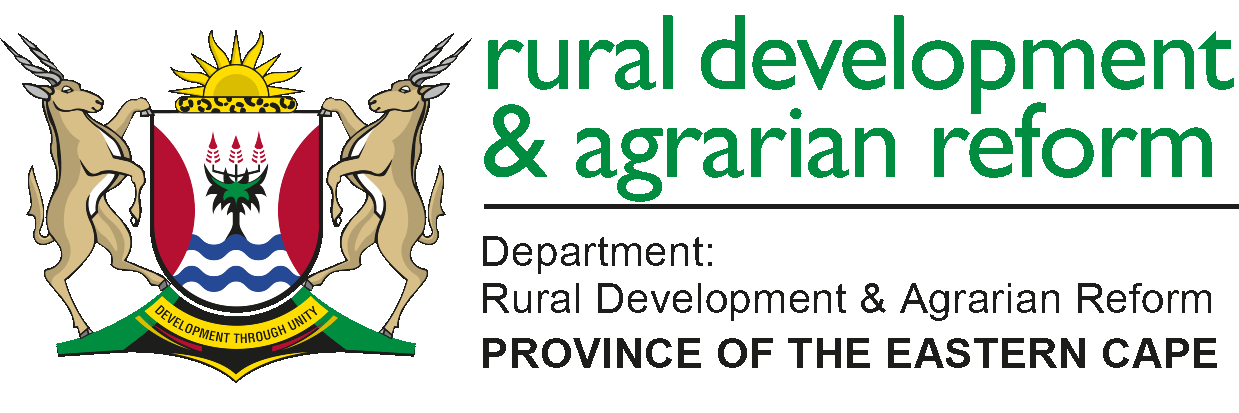
THE Eastern Cape government Department of Rural Development and Agrarian Reform held its seventh Abattoir Rating Scheme Awards in Komani yesterday evening.
The provincial abattoir awards are held on an annual basis to recognise abattoirs that contribute to the food security and safety of the province.
Through regular inspections, abattoirs are monitored within the Meat Safety and standards, requirements and regulations to ensure safe meat is produced for human consumption.
This year’s awards are based on the 2018/19 abattoir audits and inspections that were carried out by the department’s veterinary public health practitioners and state veterinarians.
The Meat Safety Act provides measures to promote meat safety and the safety of animal products; to establish and maintain essential national standards in respect of abattoirs; to regulate the importation and exportation of meat; to establish meat safety schemes; and to provide for matters concerned therewith.
The abattoirs of different levels were rated on according their categories which included the Poultry High Throughput and Low Throughput, custom feeding and emerging entrepreneurs.
Each year the department honours best performing abattoirs with awards and most importantly help the aspiring and emerging business to surface and participate meaningfully to the economy and the province’s food security.
MEC for Rural Development and Agrarian Reform, Nomakhosazana Meth said the awards are a drive force to transform the industry that was previously dominated by certain racial groupings and men and also create a networking platform for businesses and government to work towards a common goal.
“This is not just another event where people dress smart and go out to enjoy themselves. But it is a platform of advancing and realizing our government’s dream of development and economic inclusiveness while at the same time keeping up with the acceptable standards of the industry. And we want to see transformation beyond racial boundaries where women are given the same recognition for their good work like men not just for gender balancing purposes,” said Meth.
The MEC added that said she was happy with the response of the youth, especially women, to the call of joining the farming for business and not prestige. But she also expressed her disappointment in the high level of noncompliance –something which she cited as an impediment to National Development Plan 2030.
“I have learnt with disappoint that many abattoirs had to close down after not meeting the acceptable standards of the industry; and we urge those businesses to make use of our district offices to see how they can be assisted to emerge above the challenges their experiencing. And part of these include the issue of not being halal compliant –a factor that is barrier to many businesses to see their produce crossing borders,” she said.
She said some of the impairments were attributed to municipality not fulfilling their mandate of providing basic services like water, sanitation and electricity. To this end, MEC Meth’s office is set to convene a meeting with municipalities and relevant stakeholders in the Chris Hani District Municipality to establish a report detailing what steps have the municipalities done to create a conducive ground for abattoirs to thrive and maximise.
Yesterday’s awards did not only see farmers trade their work suits for dapper outlooks but inspired young female farmers like Babalwa Gova of Ngangohlanga Farming and Orlando Madalane Hlanga Chicken and Livestock.
The two received awards in the category of emerging black entrepreneurs.
Gova (31) who runs a piggery and a crop farm in Matatiele said she started her business with just five pigs after realizing that no one in her area farmed for commercial purposes.
“I saw a gap and after my research I decided to start my business last year and it has been growing in leaps and bounds,” she said.
Gova added that the rigorous process which included regular visits by department’s veterinary public health practitioners and state veterinarians to her establishment in Mt Frere prepared her to trade on a national scale.
“Infrastructure is still a challenge, but after the visits by department’s veterinary public health practitioners and state veterinarians I managed to make some possible changes in my farm and I can safely say I am now sailing towards being one of the best female farmers in the country. The demand for my product grows every minute and we are grappling to meet it,” said Gova.
With the emergence and dominant use of modern technology and 4th Industrial Revolution (4IR) in other industries, Dr Zolisa Madasa said it was important for farmers to keep up with the times or risk lagging behind as far as development is concerned.
“We can’t deny the advantages and disadvantages that have come with technology. But the big disadvantage is not taking advantage of it to maximize our businesses. Embracing technology won’t only help us to meet the industry’s standards but it’s going to assist us to trade internationally and be able to meet the demand. For instance we see other abattoirs slaughtering 20 cows a day while others only slaughter half of that number. And this is one of the advantages of technology, ” said Madasa.
Madasa is one of the many farmers who were aided by the Department of Rural Development and Agrarian while his business was in its stage of infancy.
” I am grateful for the help the Department of Rural Development and Agrarian Reform continues to extend to our farmers and helping them to realise their dreams and I am one of those. I encourage other farmers to make use of the help the department extends to us, ” he said.
.Dr Gerhard Neethling Red Meat Abattoir Association (RMAA) commended the strides taken by government through the Department of Rural Development and Agrarian Reform in the province to nurture emerging farmers and motivating those who are already in service amid the unfavourable economic climate that pose a threat to the province’s food security.
“Events like these make even those who were even thinking of giving up on farming to realise the importance of their work to our livelihoods and the economy of the province. We appreciate how the government has swiftly intervened in the drought crisis and the MEC (Nomakhosazana Meth) actually going out to see and listen to the farmers’ frustrations. It shows that we share the same vision and she has our best interests at heart, ” said Dr. Neethling.
.

Copyright | Department of Rural Development and Agrarian Reform
